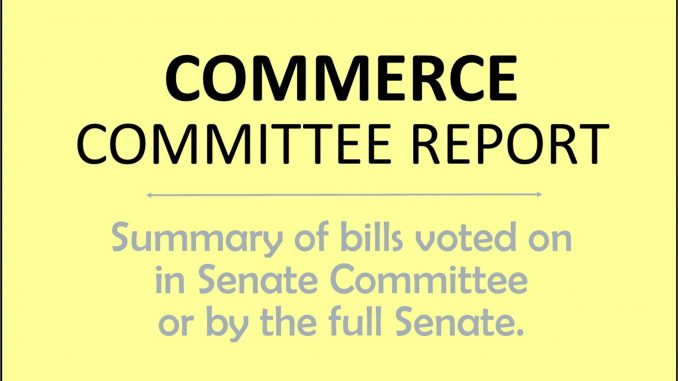
On this page
COMMITTEE ACTION:
SF 135 – Delinquent utility accounts at rental properties
SF 135, as amended, modifies current law regarding delinquent utility accounts at rental properties. If the account holder is a tenant, and the owner or landlord has made a written request for notice, it must be given to the owner or landlord within 30 days of the delinquency. The notice will require the address of the residential rental property, but a change in tenant will not require a new written notice. The landlord may withhold from a security deposit an amount reasonably necessary to pay for delinquent utility accounts the tenant was responsible to pay during tenancy. The original proposal granted the Iowa Utilities Board jurisdiction over electric, gas and water utilities in connection with the requirement to notify landlords of delinquency. There is no House companion.
[3/2: short form (Excused: Chapman)]
SF 523 – ICN billing system update
SF 523 (SSB 1209) is a recommendation by the Iowa Telecommunications and Technology Commission to create efficiencies and reduce internal costs of state government by eliminating a duplicative billing step. The Iowa Communications Network (ICN) currently invoices customers for the services it provides to them. Some customer agencies require connections to locations where the agencies provide services that are associated with their agency mission. The ICN has had discussions with stakeholders regarding the possibility of providing billing services on behalf of customer agencies, to eliminate the need for the ICN customer to issue a separate bill to their endpoint customer. The services for which this billing process would occur are not ICN services, but services provided by ICN’s customer agency and delivered across ICN’s network. Specific requirements clarify that the billing service is not a means to provide or sell ICN services to entities that are not authorized to receive ICN services directly. House companion is HSB 232.
[3/2: short form (Excused: Chapman)]
SF 530 – Acquisitions, mergers of state banks, credit unions
SF 530 (SSB 1224) prohibits a state or federal bank from selling to a state-chartered credit union, and prohibits a state bank from selling to a federal credit union. Iowa credit unions and banks have the option to be state or federally chartered. Most Iowa credit unions are state-chartered. In recent years, some community state banks have approached credit unions to discuss a sale with the goal of keeping a financial institution in the area and retaining local employees and branches. Nationally, Wells Fargo and other large banks have closed hundreds of local branches, many in smaller communities across the country. Opponents noted there is no similar law in any state or at the federal level, and this legislation restricts the free market. Credit unions should be an option, especially for community banks that may not have the financial resources to purchase a bank. There is no House companion.
[3/2: 11-5 (No: Bisignano, Lykam, Petersen, Quirmbach, Wahls; Excused: Chapman)]
SSB 1190 – IID data security, cybersecurity standards
SSB 1190 is an Iowa Insurance Division recommendation to address an increasing number of data breaches involving large insurers that have exposed and compromised sensitive personal information of millions of consumers. State insurance regulators made re-evaluation of the regulations around cybersecurity and consumer data protection a top priority. The National Association of Insurance Commissioners began drafting the Insurance Data Security Model Law, which was adopted following almost two years of deliberations and input from state insurance regulators, consumer representatives and the insurance industry. In an October 2017 report on the asset management and insurance industries, the U.S. Treasury Department recommended prompt adoption of the model by states. If a state does not adopt and implement a model that results in uniform data security regulations within five years, Congress will act by passing legislation on uniform requirements for insurer data security. This bill exempts licensees with fewer than 10 employees and licensees compliant with HIPAA. It does not create a private cause of action or limit an existing private right of action. The Commissioner may adopt rules to administer the bill, which would take effect January 1, 2022. Companion HF 719 is on the House Calendar.
[3/2: short form (Excused: Chapman)]
